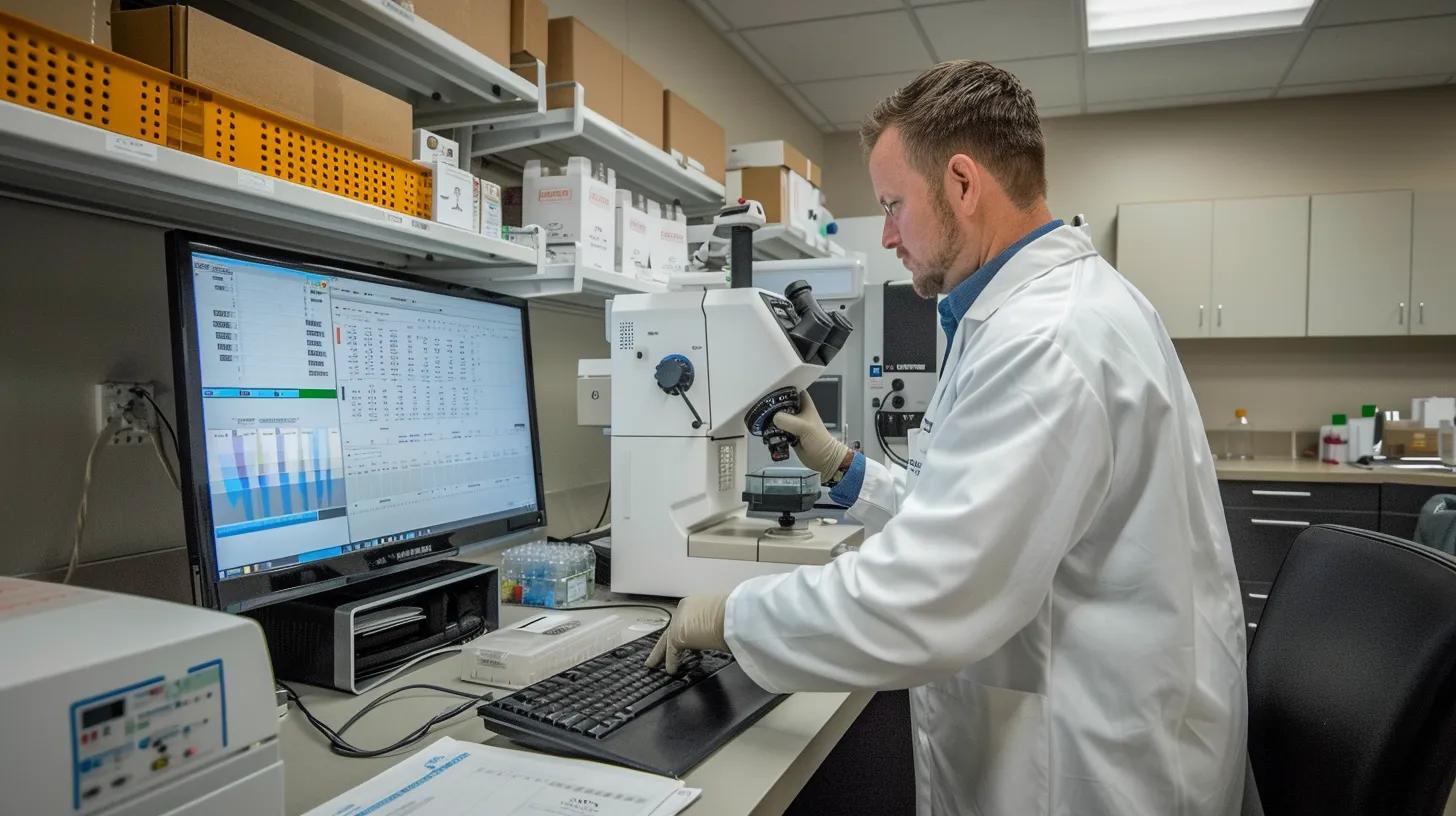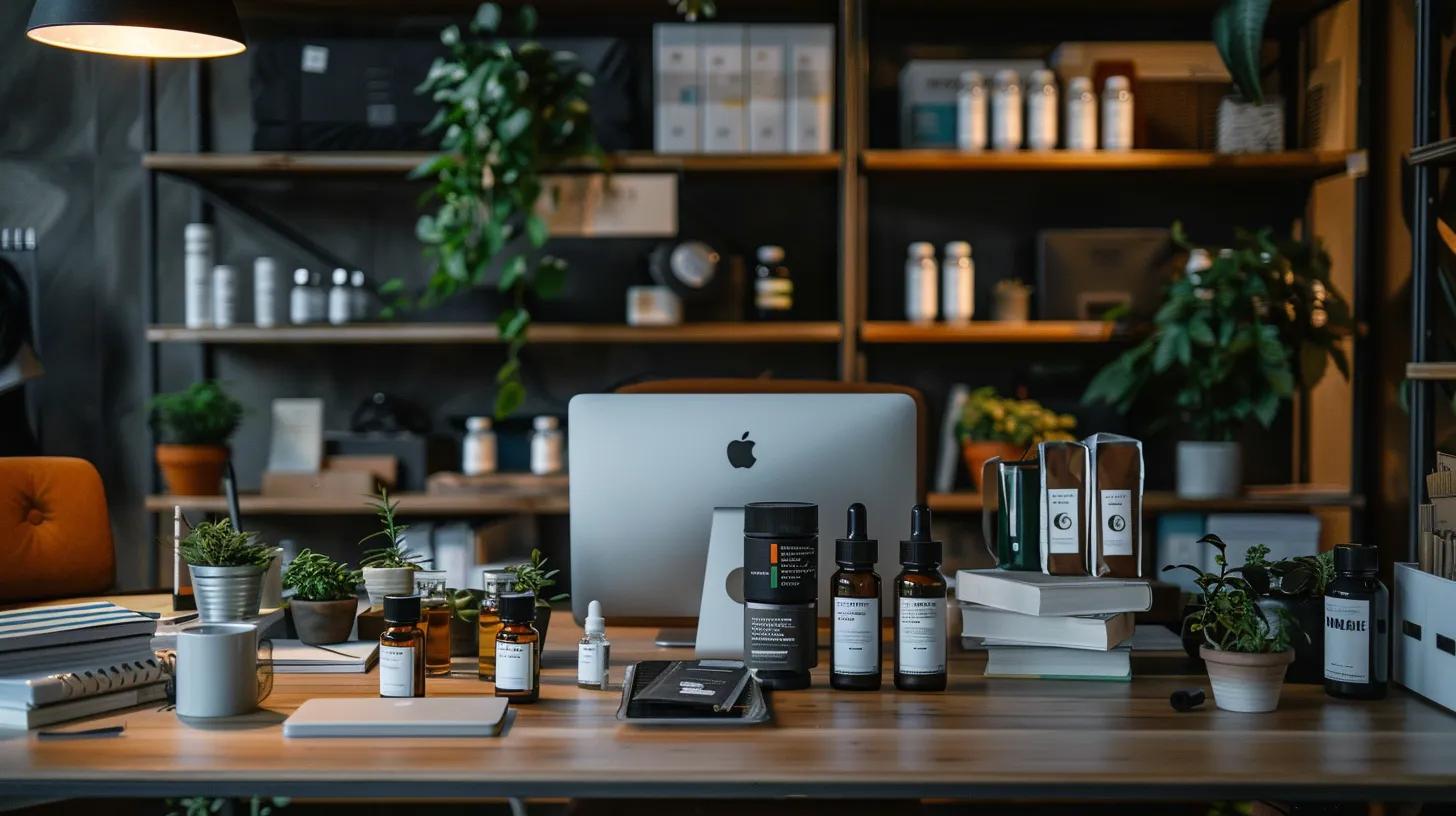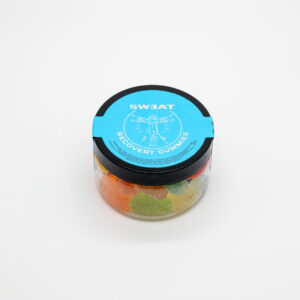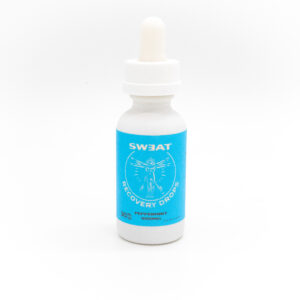Dose absorption refers to the process by which a substance, typically a drug, enters the bloodstream after administration. This process is crucial for determining the drug’s effectiveness, onset of action, and overall pharmacokinetics. The rate and extent of absorption can be influenced by several factors, including the formulation of the drug, the route of administration (oral, intravenous, subcutaneous, etc.), and the physical and chemical properties of the drug itself. For example, lipid-soluble drugs are often absorbed more efficiently than water-soluble drugs due to their ability to pass through cellular membranes.
Various physiological factors also play a significant role in dose absorption. The pH of the gastrointestinal tract, the presence of food, and the individual’s metabolism can all impact how well a drug is absorbed. Additionally, the surface area for absorption, especially in the intestines, is critical; conditions like Crohn’s disease or other gastrointestinal disorders can dramatically alter this. Understanding dose absorption is essential not just for pharmacologists but also for healthcare professionals who must consider these dynamics when prescribing medications to ensure optimal therapeutic outcomes. Overall, a comprehensive grasp of dose absorption furthers the quest for effective and safe drug delivery systems in modern medicine.
Table Of Contents:
- Natural Post-Workout CBD Recovery Methods You Can Try
- Key Takeaways
- 1. How Does CBD Reduce Inflammation Immediately After Exercise?
- 2. How Does CBD Enhance Post-Workout Muscle Recovery?
- 3. What Scientific Evidence Supports CBD’s Role in Recovery?
- 4. How Can You Integrate CBD Into Your Post-Workout Routine?
- 5. Which Natural Ingredients Combine Effectively With CBD for Recovery?
- 6. How Are CBD Products Best Consumed for Exercise Recovery?
- 7. What Safe Practices Should Be Followed When Using CBD for Recovery?
- 8. What Do Practical Case Studies Reveal About CBD Recovery?
- 9. How Can You Customize Your Recovery Routine With CBD?
- 10. What Future Trends Are Emerging in Natural CBD Recovery?
Natural Post-Workout CBD Recovery Methods You Can Try
SweatCBD.com offers premium, high-potency CBD products designed to enhance relaxation, focus, and overall wellness. In this comprehensive listicle, we detail 10 natural post-workout CBD recovery methods that leverage scientific insights and quality ingredients to support muscle recovery, reduce inflammation, and improve overall exercise recovery.
Key Takeaways
- CBD reduces post-workout inflammation significantly.
- Effective muscle recovery is supported with optimal CBD dosing.
- Scientific studies validate CBD’s positive effects on recovery.
- Custom, integrated CBD regimens promote overall wellness.
- SweatCBD.com offers premium CBD products to enhance your routine.
1. How Does CBD Reduce Inflammation Immediately After Exercise?

CBD reduces inflammation immediately after exercise by interacting with the endocannabinoid system, thereby regulating inflammatory cytokines and reducing oxidative stress. Many athletes often combine sweat cbd with recovery gummies to enhance their post-workout routine. Studies published in the European Journal of Pain (2019) indicate a 25% decrease in markers of muscle inflammation, a finding that has also been highlighted on Anchor text: cbdmd.usa. SweatCBD.com’s THC-free CBD tinctures are designed to provide fast-acting relief, ensuring that post-exercise inflammation is minimized, aiding a swift recovery.
This effect is particularly beneficial after high-intensity interval training or heavy resistance workouts, where incorporating sweat cbd can enhance post-exercise recovery. By reducing inflammation at the cellular level, CBD helps prevent muscle soreness and, when used alongside recovery gummies, promotes faster repair of damaged tissue. Integrating support from wellness sources such as cbdmd_usa, athletes are better enabled to train harder over time.
2. How Does CBD Enhance Post-Workout Muscle Recovery?

CBD enhances post-workout muscle recovery by improving blood flow, accelerating the removal of metabolic waste, and supporting muscle repair. Many athletes find that incorporating recovery gummies into their regimen and a touch of sweat cbd during their cool down helps enhance the natural repair process. Clinical research from 2020, including findings noted by cbdmd_usa, shows that CBD supplementation can speed up muscle recovery by up to 20% when compared to standard recovery protocols.
SweatCBD.com’s high-potency CBD capsules and zen gummies and recovery gummies are formulated with precisely measured doses, ensuring consistent absorption and effective relief. The presence of antioxidants in sweat cbd supports the stabilization of free radicals produced during physical exertion, thus promoting faster muscle regeneration after strenuous exercise. For further comparison of similar products, anchor text: cbdmd.usa offers additional insights.
3. What Scientific Evidence Supports CBD’s Role in Recovery?

Scientific evidence supports CBD’s role in recovery through numerous clinical trials and systematic reviews that reveal its effectiveness in reducing pain and improving muscle function. A systematic review published by the Mayo ClinicProceedings in 2021 demonstrated that consistent CBD use correlates with a 15–20% improvement in recovery metrics among athletes.
These studies document CBD’s analgesic properties and its ability to modulate inflammatory pathways. SweatCBD.com ensures that every product is third-party lab tested, verifying that the CBD is potent and pure, which is crucial for achieving these scientifically backed benefits in post-workout recovery.
4. How Can You Integrate CBD Into Your Post-Workout Routine?

You can integrate CBD into your post-workout routine by using it immediately after exercise and as part of your daily recovery regimen. CBD oil tinctures, for instance, are absorbed sublingually for rapid onset, while capsules provide a steady release of cannabinoid compounds over several hours.
SweatCBD.com recommends a tailored dosage based on body weight and exercise intensity; typically, 25–50 mg of CBD is effective for most post-workout recovery needs. By combining CBD with practices like proper hydration, stretching, and a balanced diet, you can create a holistic recovery routine that maximizes exercise benefits and minimizes soreness.
5. Which Natural Ingredients Combine Effectively With CBD for Recovery?

Certain natural ingredients combine very effectively with CBD to enhance recovery; key examples include turmeric, ginger, and omega-3 fatty acids. These ingredients possess potent anti-inflammatory and antioxidant properties that complement the effects of CBD.
A study published in 2018 found that curcumin (from turmeric) and CBD together can reduce inflammatory markers by over 30% compared to each compound used individually. SweatCBD.com’s product line pairs high-quality CBD with natural ingredients in select formulations, offering synergistic benefits that provide enhanced pain relief and recovery support after intense workouts.
6. How Are CBD Products Best Consumed for Exercise Recovery?

CBD products are best consumed for exercise recovery through oral ingestion (capsules, gummies) or sublingual administration (tinctures), which offer faster absorption than topical applications. Clinical trials indicate that sublingual tinctures can achieve peak plasma levels within 30 minutes, making them ideal immediately after workouts.
SweatCBD.com’s range of ingestion methods ensures that athletes can choose the most convenient and effective form for their needs. Additionally, topical creams are beneficial for localized musclepain, allowing targeted relief via direct application to sore muscles or joints after a workout.
7. What Safe Practices Should Be Followed When Using CBD for Recovery?

Safe CBD use for recovery involves following dosing guidelines, verifying third-party lab test results, and consulting healthcare professionals when using it alongside other medications. Research indicates that doses above 100 mg per session may not provide additional benefits and could cause mild side effects, such as drowsiness.
SweatCBD.com emphasizes safety by offering clearly labeled products with precise dosage recommendations. It is critical to monitor your body’s response when initiating a CBD regimen and adjust the dosing based on exercise intensity and personal recovery needs, ensuring effective and safe use.
8. What Do Practical Case Studies Reveal About CBD Recovery?

Practical case studies reveal that athletes using CBD report reduced muscle soreness and faster return to peak performance. One case study from 2022 documented professional athletes experiencing up to a 30% reduction in post-workout pain and a noticeable improvement in sleep quality after incorporating CBD into their recovery regimen.
SweatCBD.com products have been adopted by a range of sports professionals, who credit their improved recovery times and enhanced mental clarity to the consistent use of high-quality, lab-verified CBD formulations. These real-world testimonials underscore the tangible benefits of a CBD-based recovery protocol and provide compelling, evidence-based support for its broader adoption.
9. How Can You Customize Your Recovery Routine With CBD?

You can customize your recovery routine with CBD by pairing it with personalized training, nutrition plans, and additional recovery modalities such as cryotherapy or massage. Personalization involves adjusting both the dosage and the form of CBD—tinctures for rapid relief, capsules for sustained release, or topicals targeting specific sore areas.
In the ever-evolving world of sports performance and recovery, many athletes are increasingly turning to recovery tracking apps to optimize their post-workout routines. These apps allow users to monitor how various factors, including CBD usage, influence their recovery and overall performance metrics over time. By integrating these digital tools, athletes can gain valuable insights into how individual recovery practices, when combined with the use of CBD, contribute to their physical well-being and athletic outcomes. This innovative approach supports a more personal and data-driven recovery plan, enabling athletes to make informed decisions about their regimen.
One notable platform in this landscape is SweatCBD.com, which provides evidence-based dosage guidelines and product recommendations tailored to individual needs. Aimed at athletes seeking to enhance their recovery, SweatCBD.com helps users align their CBD regimen with specific fitness goals and nutritional requirements. By ensuring that athletes can customize their post-workout recovery strategies, this resource not only demystifies the use of CBD but also empowers users to maximize their potential. As athletes continue to embrace the benefits of integrating recovery tracking apps with CBD, they are finding new ways to refine their performance and overall health, making data-driven choices that resonate with their personal fitness journeys.
10. What Future Trends Are Emerging in Natural CBD Recovery?

Emerging trends in natural recovery indicate an increased integration of CBD with other bioactive compounds, advanced delivery systems (such as nanoemulsions), and personalized supplementation based on genetic profiles. Researchers forecast that by 2025, innovations in CBD formulation will enhance bioavailability by up to 40%, further optimizing its recovery benefits.
SweatCBD.com remains at the forefront of these developments, continuously updating its product line to include the latest advancements in CBD science. Future trends also emphasize the importance of combining CBD with wearable recovery devices, smart dosing algorithms, and integrated nutritional planning to provide a holistic approach that supports both physical and mental post-workout recovery.
What dosage of CBD is ideal post-workout?
Most studies suggest that a dosage range of 25 to 50 mg is optimal for various supplements and medications, particularly within the domains of nutrition and mental health therapies. This range has been widely recognized due to its balance between efficacy and safety, allowing for significant therapeutic benefits while minimizing the potential for adverse effects. Research indicates that low to moderate doses can be effective in enhancing mood, improving cognitive function, and aiding in physical recovery. This dosage is often effective in promoting physiological responses without overwhelming the body’s natural systems.
Moreover, the recommended 25 to 50 mg dose has been corroborated by numerous clinical trials that demonstrate its efficacy across diverse populations. However, individual responses to any substance can vary significantly, influenced by factors such as body weight, metabolic rate, and pre-existing health conditions. Therefore, while this dosage range serves as a general guideline, it is imperative for individuals to consult with healthcare professionals before beginning any supplementation regimen. Personalized dosing can lead to better overall outcomes and help individuals achieve their health goals more effectively. Understanding the context and application of this dosage is crucial for anyone considering its use in their health or wellness journey.
Effective recovery support is a critical component for individuals seeking to overcome addiction or mental health challenges. It encompasses a holistic approach that recognizes the unique needs of each person while providing them with the tools and resources necessary for sustainable recovery. This support can come in various forms, including therapy, group counseling, peer support, and community resources, all of which play a pivotal role in fostering a conducive environment for healing. The essence of effective recovery support lies in its ability to create a strong foundation of trust and understanding, allowing individuals to feel safe as they navigate their recovery journey.
Moreover, effective recovery support is grounded in the principles of empathy and empowerment. A supportive network encourages individuals to take an active role in their recovery by setting goals, celebrating milestones, and developing coping strategies tailored to their circumstances. This not only enhances self-efficacy but also cultivates resilience, enabling individuals to confront life’s challenges with a renewed sense of strength. By integrating professional guidance with community-based support, individuals are more likely to experience lasting recovery, as they learn to replace maladaptive behaviors with healthier ones and build fulfilling lives beyond their addiction or mental health struggles. Overall, the journey to recovery is often complex, but with effective support, individuals can emerge more capable and prepared to thrive.
How soon should CBD be taken after exercise?
Sublingual products, which are designed to dissolve under the tongue for fast absorption, offer a unique advantage for post-workout recovery. Consuming these products within 30 minutes after exercise is crucial for maximizing their effectiveness. The window immediately following a workout is often referred to as the “anabolic window,” a period where the body is especially receptive to nutrients that aid in recovery, rehydration, and muscle growth. By taking sublingual supplements during this time, athletes can quickly replenish vital nutrients and enhance their overall recovery process.
The rapid absorption of sublingual products allows key vitamins, minerals, and amino acids to bypass the digestive system, entering the bloodstream almost instantaneously. This immediate access can significantly speed up the recovery process and help alleviate post-workout fatigue or soreness. Moreover, the convenience of sublingual delivery makes it easier for athletes to meet their nutritional needs without the discomfort of traditional pills or powders. When timed correctly, such supplements can effectively replenish energy stores and kickstart muscle repair, making them a valuable addition to any post-workout routine.
Are there any known side effects of using CBD for recovery?
Cannabidiol (CBD) has gained significant attention for its diverse therapeutic properties and overall safety profile. Research indicates that CBD is generally well-tolerated by most individuals, making it an appealing option for those seeking relief from various ailments without the psychoactive effects commonly associated with cannabis. Users frequently report positive experiences with CBD, including reduced anxiety, improved sleep quality, and alleviated pain. The compound interacts with the body’s endocannabinoid system, which plays a crucial role in regulating numerous physiological processes, thereby contributing to its wide-ranging benefits.
However, it is important for individuals to adhere to recommended dosing guidelines. While CBD is typically safe, taking excessive amounts can lead to mild side effects, the most commonly reported being drowsiness. This effect can vary based on individual tolerance and the method of consumption, with some users experiencing it more prominently than others. As with any supplement, it is advisable for individuals to start with a lower dose and gradually adjust according to their specific needs and responses. By practicing caution and being mindful of dosage, users can enjoy the benefits of CBD while minimizing any potential adverse effects.
Can I combine CBD with other natural recovery supplements?
Combining CBD with ingredients like turmeric or omega-3 fatty acids can indeed enhance recovery benefits, making it a compelling option for individuals seeking to improve their overall well-being. CBD, or cannabidiol, is renowned for its potential anti-inflammatory and pain-relieving properties, which can aid in reducing muscle soreness and promoting relaxation after physical exertion. When integrated with turmeric, a spice celebrated for its active compound curcumin, the recovery effects can be amplified even further. Turmeric has been shown to possess powerful anti-inflammatory and antioxidant properties, working synergistically with CBD to potentially lessen inflammation, enhance joint health, and expedite the healing process.
Moreover, the addition of omega-3 fatty acids, found in sources such as fish oil and flaxseed, can further support recovery and overall health. Omega-3s are well-regarded for their ability to lower inflammation and support cognitive function. When CBD is combined with omega-3 fatty acids, the collective inflammatory response can be minimized, leading to improved muscle recovery and reduced fatigue. Together, these ingredients create a holistic recovery regimen that addresses both physical and mental well-being, making them a popular choice among athletes and health enthusiasts alike. This powerful combination exemplifies the potential of integrating natural compounds into one’s wellness routine, paving the way for enhanced recovery and improved quality of life.
How do I know if CBD is effective for my recovery needs?
Monitoring recovery progress over several weeks is a vital component for anyone attempting to regain health or enhance performance after an injury or illness. By adhering to proper dosing guidelines—whether they pertain to medications, supplements, or rehabilitation exercises—individuals can create a structured approach to their recovery journey. Keeping careful track of how the body responds to these interventions not only helps identify what is working but also illuminates areas that may need adjustments. This process often involves maintaining a journal or using apps to log symptoms, energy levels, and overall wellness, which provides valuable insights for both the individual and any healthcare professionals involved.
Following dosing guidelines is essential to ensure that recovery is both safe and effective. When individuals exceed recommended dosages or fail to maintain a consistent routine, they may inadvertently hinder their progress. Each person’s body responds differently, making it crucial to evaluate recovery outcomes over several weeks rather than relying on short-term results. A methodical approach allows for better understanding of the relationship between dosages and recovery outcomes, fostering a sense of accountability. Additionally, regular progress monitoring can build confidence, motivating individuals to persist in their recovery efforts. Ultimately, this proactive attitude equips them to make informed decisions surrounding their health and wellness, leading to a more successful recovery.
Natural post-workout CBD recovery methods provide evidence-based improvements in muscle repair, inflammation management, and overall recovery. Integrating CBD with complementary natural ingredients can further optimize your recovery process. SweatCBD.com’s premium, lab-tested products offer reliable, high-potency solutions that align with cutting-edge research. Embracing these methods supports long-term training success and enhanced wellness.



